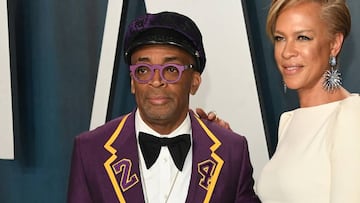What famous directors have never won an Oscar?
The Academy Awards are Hollywood’s highest honors. Still, some directors never get to take home the hefty golden prize, yet their work is considered cinematic excellence.


The Academy Awards are generally accepted as Hollywood’s highest accolades. That said, there are a few film directors who have never received that priceless golden Oscar, even though some of their work is still considered cinematic masterpieces. We consider a few of those unfortunate artists...
The best film directors without an Oscar
Alfred Hitchcock
To fans of horror, it may be surprising that Sir Alfred Hitchcock, whose films defined the genre for a generation, never won an Oscar for his work. Throughout his career, Hitchcock was nominated for Best Director five times, Rebecca (1940), Lifeboat (1944), Spellbound (1945), Rear Window (1954), Psycho (1960). Hitchcock’s only film to take home the prize for Best Picture was Rebecca in 1940. Some believe that although today many of Hitchcock’s films are considered classics, in his day, they were not given the prestige needed to win an Oscar.
Many of the directors, and the films that won them the prize, will be nothing more than a footnote in film history. However, Hitchcock will be remembered as a director whose films remained relevant and riveting to audiences decades after their release and inspired filmmakers for generations.
Tarantino, Anderson, Lee
More contemporary directors who have never won the award include names such as Quinten Tarantino, who has been nominated three times, Wes Anderson for The Grand Budapest Hotel, and Spike Lee for BlacKkKlansman.
- Real Madrid legends and the Oscars
- Who are the favourites for the Oscars 2021?
- 2021 Oscars Awards: what rules have changed?
- Which movies have won Oscar for Best Picture each year?
- When and where are the 93rd Academy Awards?
Overwhelming white and male
The Academy has received criticism for lacking diversity in the nomination process. Earlier this year, Insider, the online media company, surveyed nominations in the past decade and found 89% had gone to white nominees. Hollywood, in general, is overwhelmingly white, and the challenges that creates for minority actors and filmmakers are well documented. One example comes from an interview with Academy Award winning actress, Lupita Nyong’o and Daily Show Host, Trevor Noah, where Nyong’o expressed her frustration with Hollywood’s hesitancy to cast in movies that are not just period pieces, which often lead to the same stories beyond retold time and time again.
Directors from minority backgrounds encounter many of the same challenges. In all of Oscar history, only six Black directors have been nominated but none have won and no directors from the United States of Latin American descent have ever been nominated.
Directed by Quentin Tarantino. pic.twitter.com/2DBCp0zz34
— Moviewa (@wannamovie) April 23, 2021
Three directors from Latin America have won the award, including two directors who have won the award twice, Alejandro G. Iñárritu for Birdman and The Reverent, Alfonso Cuarón for Gravity and Roma, and Guillermo del Toro who won for The Shape of Water.
Thirty directors of non-English films have been nominated and only two have won, Alfonso Cuarón for Roma and last year’s win of Bong Joon-ho for Parasite. This year, Danish director, Thomas Vinterberg, is nominated for his film, Another Round.
Women, especially female directors of color, have often been ignored by the Academy. Of the ninety-two winners for Best Director, ninety-one have been men. Only five women have been nominated for the award and only one has won, Katherine Bigalow, The Hurt Locker. When Barbara Streisand, another woman whose works never garnered her a nomination for Best Director, announced Biggalow’s win she said “well the time has come” which was followed by a standing ovation by the audience. This year, two female directors have been nominated, Emerald Fennell for Promising Young Women and Chloé Zhao for Nomandland.
Nominees are voted on by the members of Academy of Motion Picture Arts and Sciences which is made up of all those who are involved in film making, from actors to custom designers, directors to casting directors, and more. All in all, the Academy has over 8,000 voting members.
#ShortTakes: Watch as filmmakers @GlenKeanePrd, @GennieRim and @PeilinChou interview Marlowe (age 6) about their Oscar-nominated film #OvertheMoon. #Oscars pic.twitter.com/DSYbScRlNX
— The Academy (@TheAcademy) April 22, 2021
The Academy has made efforts in the past few years to increase the diversity of their membership which could lead to nominees of more diverse backgrounds having their works recognized. In 2020, the Academy welcomed over 800 new members representing 68 countries, of which 46% are women and 35% are from “underrepresented ethnic and racial communities.” The effects of diversification will take time and it will be important to follow the new members added this year to see if the trends continue.
Oscars 2021: when do the Academy Awards start?
The 2021 Oscars take place on 25 April 2021, with the ceremony starting at 8.30 p.m. ET / 5.30 p.m. PT.
Related stories
ABC’s coverage begins at 8:00 p.m. ET / 5:00 p.m. PT on the ABC TV channel, ABC.com and the ABC App.
Find out everything you need to know.

